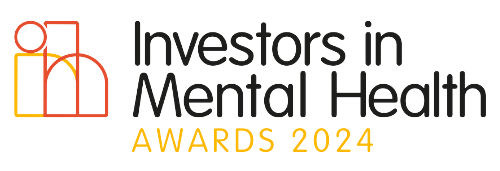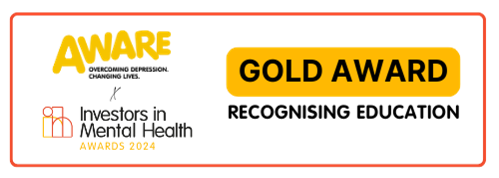Food and Nutrition
SPECIFIC AIMS OF THE DEPARTMENT
During the course pupils will learn about:-
• the food we consume – where it comes from and how it is produced
• the foods we should eat to maintain good health
• the differing needs of various groups of people
• prominent health issues in today’s society
• how to shop effectively
• why people choose certain foods
• affordability when it comes to food and food choice.
Pupils will also develop practical food preparation, cooking and presentation skills.
EXAM BOARD
CCEA
OVERVIEW OF KEY STAGE 3 CURRICULUM
KS3 Food and Nutrition
In Food & Nutrition classes, KS3 pupils have opportunities to explore a range of topics and develop independent skills when learning about:
• Healthy Eating
• Home and Family Life
• Independent Living.
Food and Nutrition helps prepare young people for independent living. It is a practical subject that can promote and enhance the wellbeing of individuals, families and communities through understanding food choice, nutritional health, consumer issues and relationships. This subject aims to equip pupils with the knowledge, skills and values that will help them to make appropriate lifestyle choices.
The skills, knowledge and understanding developed through studying Food and Nutrition are important in today’s society, where obesity is an increasing problem, diet-related illness is prevalent and many people rely on ready meals and convenience foods.
Throughout KS3 pupils will have opportunities to :-
• Develop practical skills in the safe, hygienic, healthy and creative use of foods to plan, prepare, cook and serve a range of meals.
• Develop the practical skills in the safe use of a range of utensils and appliances in the preparation, cooking and serving of a variety of dishes.
• Investigate the impact of storage, preparation and cooking on food.
• Explore ways to achieve a healthy diet using the Eatwell Guide
• Develop a range of skills to promote independence through planning, managing and using resources.
• Investigate a range of factors that influence consumer choices and decisions – including ethical, financial, psychological.
• Investigate a range of factors that influence consumer choices and decisions in relation to food
OVERVIEW OF KEY STAGE 4 CURRICULUM
https://ccea.org.uk/key-stage-4/gcse/subjects/gcse-home-economics-food-and-nutrition-2017
The GCSE Food and Nutrition course provides opportunities for pupils to learn about the science behind food – the nutritional content of foods, current nutritional guidelines, and catering for the differing dietary needs of the people in today’s society & the resources required to do this effectively.
Component 1: Food and Nutrition - Taught in Year 11 but Examined in Year 12 and carries a weighting of 50%
Pupils will study:
• food provenance
• food processing and production
• food and nutrition for good health
• energy and nutrients
• macronutrients
• micronutrients
• fibre
• water
• nutritional and dietary needs
• priority health issues
Component 1 continued: Food and Nutrition - Examined in Year 12 and carries a weighting of 50%
• being an effective consumer when shopping for food
• factors affecting food choice
• food safety
• resource management; and
• food preparation, cooking and presentation skills.
Component 2: - Practical Food and Nutrition Controlled Assessment - Completed in Year 12 and carries a weighting of 50%
Pupils will research a given task title and will then:
• justify a choice of dishes
• plan their practical
• carry out their practical
• evaluate all parts of the task.
Pupils will complete the written report according to the guidance materials and adhere to word counts.
OVERVIEW OF KEY STAGE 5 CURRICULUM
https://ccea.org.uk/post-16/gce/subjects/gce-nutrition-and-food-science-2016
A Level – Nutrition & Food Science
This is a stimulating course which will allow pupils to gain a detailed understanding of nutrition and food science.
AS 1: Principles of Nutrition Students will study macronutrients and micronutrients and other dietary constituents:
• protein
• fat
• carbohydrate
• vitamins
• minerals
• water and other fluids.
This unit will also look at nutrition through the lifecycle and nutrient requirements at each stage
Weighting - 50% of AS , 20% of total A level
AS 2: Diet, Lifestyle and Health Students will study current research in relation to diet, lifestyle and health:
• eating patterns
• energy and energy balance
• diet-related disorders including obesity, cancer, cardiovascular disease, and Type II diabetes
• alcohol
• physical activity.
Weighting - 50% of AS , 20% of total A level
Option 2: Food Safety and Quality
Aquinas opts for studying the module as it closely aligned with food related courses at UU & Queen’s University, Belfast Students will study the importance of securing a safe food supply from producer to consumer:
• food safety
• safety through the food chain
• microbial contamination
• chemical contamination
• additives
• allergens
• controls and legislation.
Weighting - 30% of A level
A2 2: Research Project Internal assessment You will complete a 4000-word research-based project. Your teacher will mark the project and CCEA will moderate the results. 30% of A level
ADDITIONAL INFORMATION
KS3 Cookery Club on weekly and Year 13-14 Enrichment Cookery












